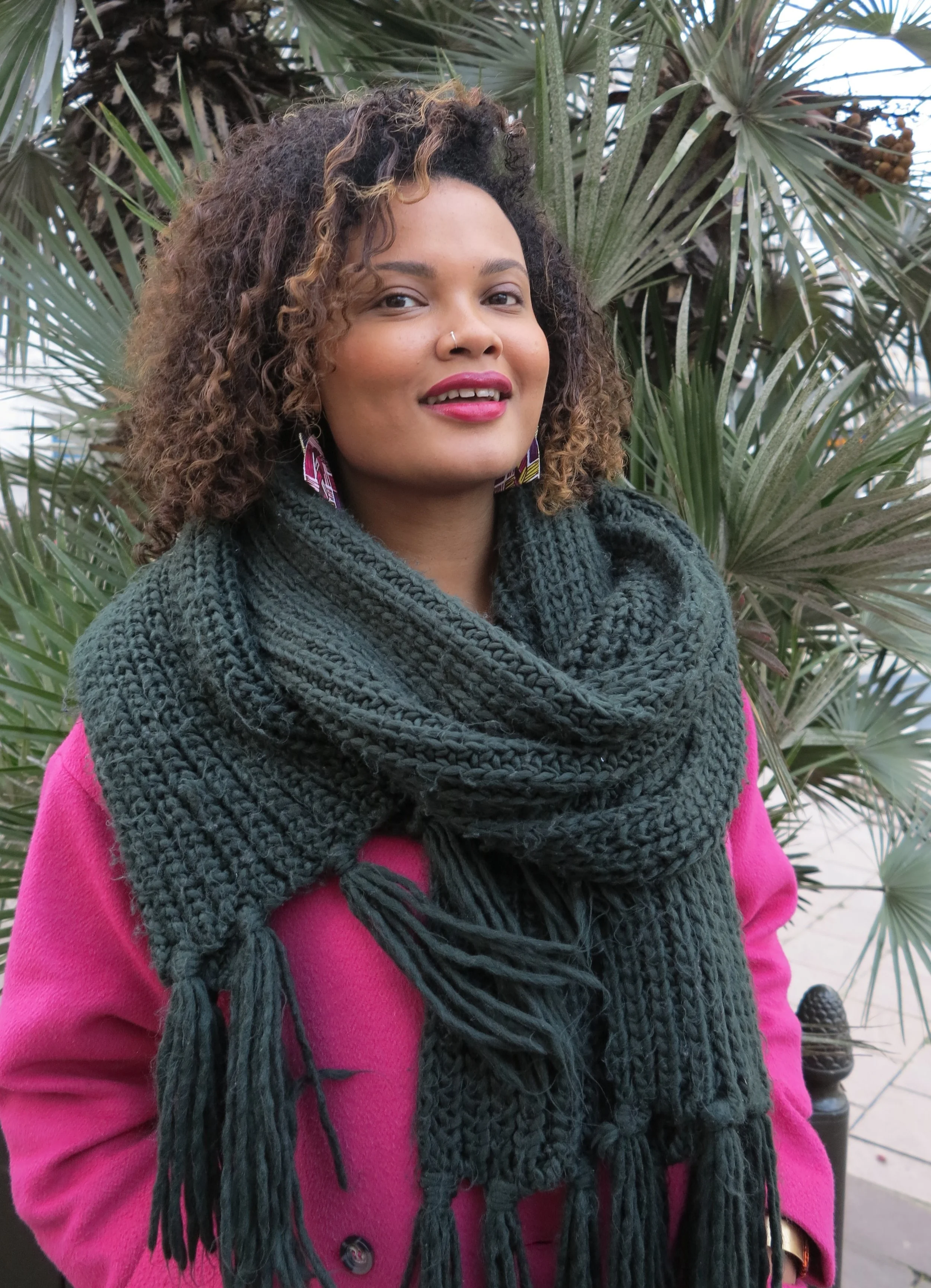When I was living in Cameroon in my younger years I used kids’ relaxers to have suppler curls, but after moving to France I became well aware that relaxing my hair in a country with hard water and such weather wouldn’t do me any good.
In Cameroon, people are into straightening and extensions, which isn’t a trend I ever wanted to follow. It might be linked to the way I’ve been raised.
My mother always used to do cute hairstyles on our natural hair so I never saw my curls as something I needed to alter or a burden.
Coming to France with my mixed heritage and my natural hair wasn’t a burden either as I saw this as an opportunity to impose my personality and identity in a new country.
Being new to this country also made me realise the issues linked to black women’s lack of representation.
I remember going through media content a couple of years ago, looking for some ethnic minority faces and eventually found it embodied by a curly-haired biracial girl. Wanting to see a dark-skinned girl with an afro seemed like way too much to ask.
I believe this is changing and I think that the American model has something to do with it. They use a marketing model which is divided by ‘race’ and which seems to work quite well.
France got inspired and now notices the fact that minorities (mainly black and brown people) represent a real business opportunity.
So yes, this is changing - not because minds are opening, but because it would be foolish to leave any money-related opportunity to the sidelines.

